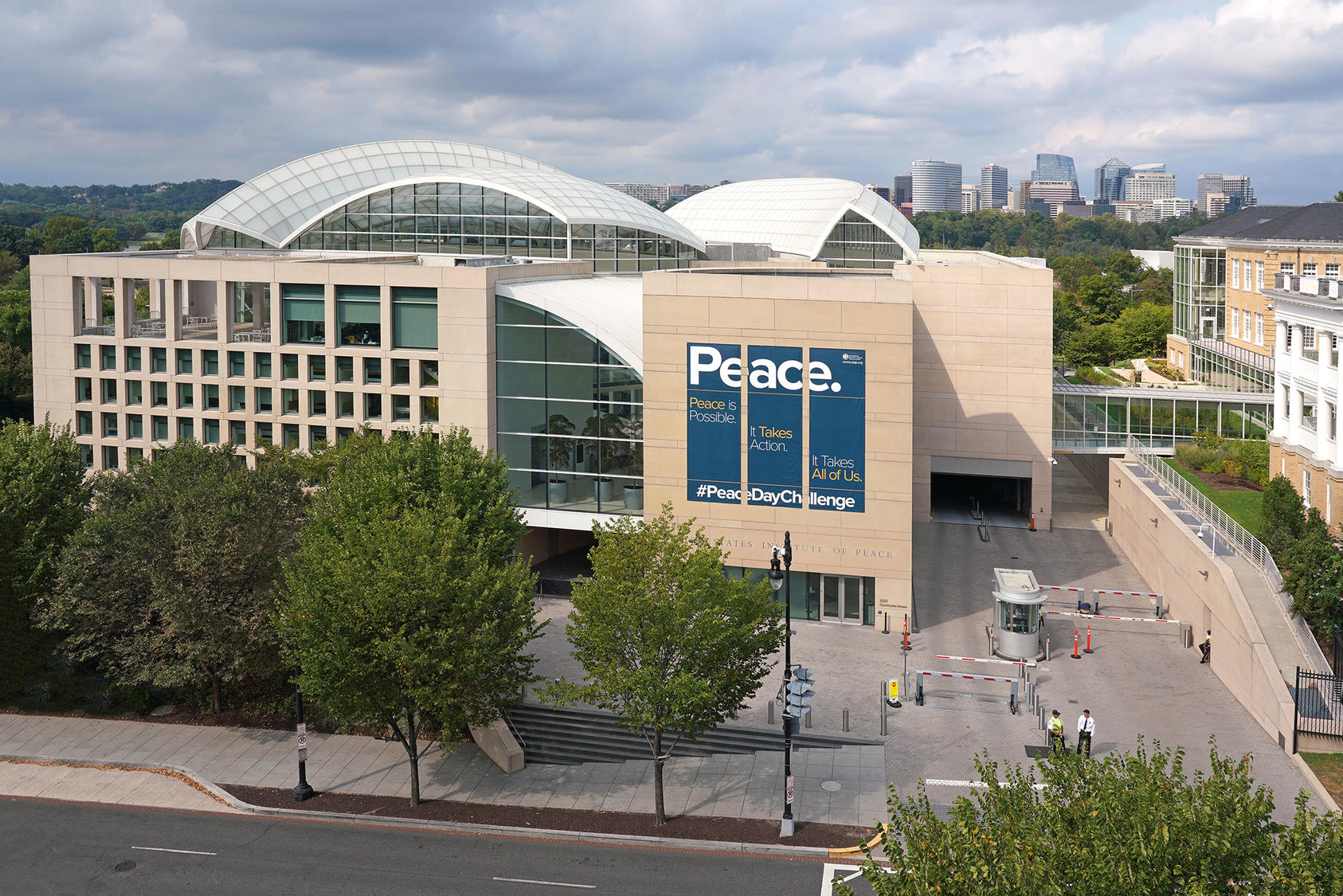Peace Day Open House
Each year, USIP asks people to advocate for peace as a real alternative to violent conflict by taking action on the International Day of Peace. The 2022 call to action is: “Say it. Do it. Share it.” USIP challenges you to say what peace means to you; do something that demonstrates your commitment to peace; and share it on social media and inspire others to do the same. Explore your own understanding of peace and conflict, take action for peace and connect with a global network of peacebuilders using #PeaceDayChallenge.

And do all of that while visiting USIP’s headquarters. Located at the northwest corner of the National Mall in Washington, D.C., USIP’s headquarters serves as a destination for the American public to learn about peacebuilding approaches and as a symbol of the United States’ commitment to global peace.
Observe the International Day of Peace with a visit to the headquarters of the United States Institute of Peace (USIP)! Located at the northwest corner of the National Mall, USIP will open its doors for a public open house on September 21, with guided tours and informational exhibits. There will also be interactive stations for visitors young and old, including a live mural painting led by renowned Afghan art collective, ArtLords, and activities to engage in USIP’s #PeaceDayChallenge.




